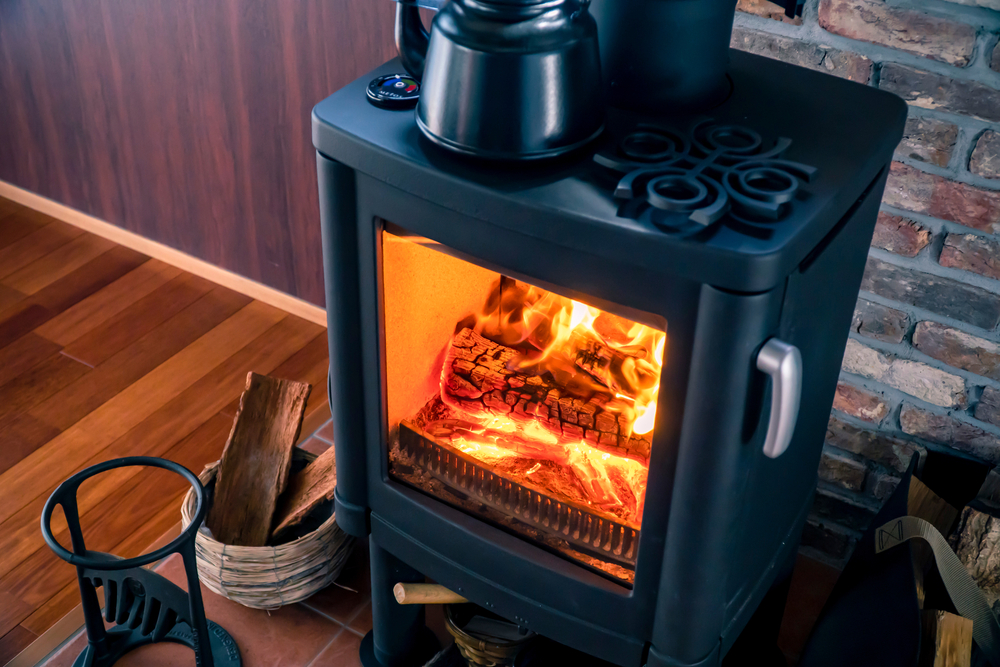Ten state attorneys general (AGs) filed a 60-day Notice of Intent (NOI) to sue the EPA over New Source Performance Standards (NSPS) for residential wood-burning heaters on June 29, 2023. The letter alleges the EPA failed “to timely review and revise the [NSPS] for Residential Wood Heaters (wood heaters) under the Clean Air Act (CAA),” which requires updates every 8 years.
Parties included in the letter are:
- New York
- Alaska
- Illinois
- Maryland
- Massachusetts
- Minnesota
- New Jersey
- Oregon
- Vermont
- Washington
- Puget Sound Clean Air Agency
Section 111(b)(1)(A) of the CAA requires the EPA to list categories of stationary sources that “cause, or contribute significantly to, air pollution which may reasonably be anticipated to endanger public health and welfare.” The Act also requires the EPA to review and revise, as necessary, these standards every 8 years “based on the best technological system of continuous emission reduction,” according to the NOI.
The first emissions standards for particulate matter (PM) for new wood heaters were issued by the EPA in 1988, but in 2013, several states sued the Agency to update the standards. Through a consent decree, the EPA agreed to issue updated performance standards, which resulted in a 2015 final rule with two sets of updated performance standards for new wood-burning heaters.
“The same day that EPA issued the final performance standards, a wood heaters trade association challenged the rule in the D.C. Circuit,” the NOI says. “The association later limited its challenge to EPA’s compliance audit testing provisions.”
Wood smoke contains fine particulate matter (PM2.5), carbon monoxide, polycyclic aromatic hydrocarbons, and other toxic air pollutants.
Acknowledging the harmful impacts of PM2.5, the “EPA recently proposed to strengthen the National Ambient Air Quality Standards (NAAQS) for PM2.5,” continues the NOI. “In doing so, EPA documented a causal relationship between PM2.5 exposure and mortality and cardiovascular effects. Multiple studies also confirm adverse health impacts of PM2.5 exposure, including on cancer rates, dementia rates, and childhood lung function.”
The NOI also points out that PM2.5 exposure is “particularly harmful to environmental justice communities” and alleges the “EPA’s wood heater testing and certification program to implement the performance standards is failing to ensure that new wood heaters comply with emission limits.”
To research concerns about the EPA’s wood heater certification program, the NOI notes, the Northeast States for Coordinated Air Use Management and the Alaska Department of Environmental Conservation coordinated the review of more than 250 certified wood heaters.
“The study identified deficiencies in all reviewed test reports,” the letter says. “Many of the wood heater models did not have publicly available certification test reports, violating the regulations implementing the performance standards. The study did not find any of the other reports to be complete and in full compliance with regulatory requirements. Based on this review, the Northeast States for Coordinated Air Use Management and the Alaska Department of Environmental Conservation found that EPA’s certification program did not assure that new wood heaters, subject to the 2015 performance standards, are cleaner than devices sold under the 1988 performance standards.”
Additionally, the study found the EPA’s failures are a result of “unclear test methods, an ineffective third-party certification review process, and a lack of audits.”
The study’s findings were corroborated by the EPA Office of Inspector General (OIG). According to the OIG report, “the EPA has approved methods that lack clarity and allow too much flexibility.”
“As a result, certification tests may not be accurate, do not reflect real-world conditions, and may result in some wood heaters being certified for sale that emit too much particulate-matter pollution,” the report added.
It also made mention of $82 million in grant distributions for residential wood heater exchanges between fiscal years 2015 and 2021.
“However, if the replacement models do not meet emission standards because of the reasons described above, millions of federal, state, and local dollars could be wasted,” it said, noting that approximately 39% of households in Fairbanks North Star Borough use wood heaters to heat their homes.
Without reliable enforcement, the public has no way of knowing whether wood-burning heaters meet emissions standards.

